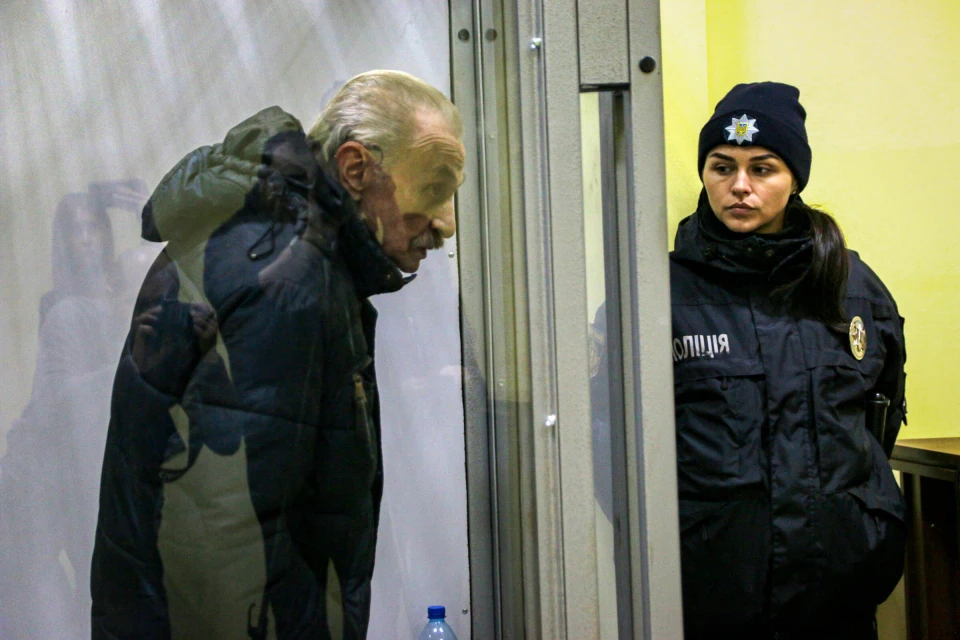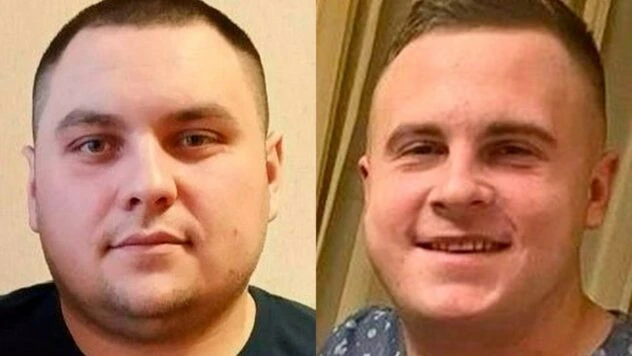
With blood on their hands: Unmasking enemy informants and understanding their motives
It's not an uncommon occurrence to apprehend enemy collaborators in Ukraine. Espreso sheds light on the individuals who betray their nation, putting the lives of Ukrainians at risk, even those close to them
Fire adjusters operate not only at the front lines but also across all Ukrainian regions. They are agents recruited by Russia, divulging critical information about strategic and military locations to the occupying Russian forces. Through them, missile strikes are orchestrated on crowded areas, resulting in numerous civilian casualties.
In this article, you'll discover:
- Real-life instances of enemy collaborators in action
- The motives driving fire adjusters
- The efforts of the SBU in apprehending these collaborators
- What to do if you find yourself a target for recruitment
Examples of enemy collaborators’ work
Anyone can collaborate with occupying Russian forces, from the young to the old, from neighbors to academic advisors.
Take Oleksandr Kostornyi, a 72-year-old KGB major from Lviv, for instance. He directed rockets at the Yavoriv training ground, resulting in a tragic incident in March 2022. Sixty-four people lost their lives, and many more are still missing, with over 100 people sustaining injuries.

Kostornyi was apprehended on June 28, 2022, and the SBU officially informed him of the suspicion. Investigators claim that he sent the Russians a map of the Yavoriv training ground via Telegram, marking locations for missile strikes. Despite the evidence, Kostorny denies guilt, stating that he sent a "scheme of fishing and hunting grounds" to show a friend his mushroom foraging spots. The ongoing trial reached its final session on November 22.
It's worth noting that this agent attempted to run for the Lviv City Council and Verkhovna Rada at least twice.
A recent case involves an associate professor at Kharkiv University. He is under suspicion for adjusting Russian strikes and documenting the movements of military equipment.
"The individual documented the aftermath of missile and artillery strikes on a defense facility in the Kharkiv region, a frequent target of enemy attacks. The accused also observed the routes taken by Armed Forces units and the locations of logistical warehouses, including those housing ammunition. Additionally, the associate professor monitored the activities of foreign volunteer organizations in the Kharkiv region," as reported by the SBU.
He was recruited at the onset of the full-scale invasion and is currently held in custody without bail.
On October 5, an attack occurred at a cafe in the village of Hroza, Kupyansk district, resulting in the tragic loss of over 50 lives—community members, friends, and neighbors who were attending a memorial dinner.
Subsequently, law enforcement identified the individuals responsible for directing the Russian rocket toward their own community. Dmytro and Volodymyr Momon, former police officers, betrayed Ukraine in 2022 during the occupation of Shevchenkove, Kupyansk district.

Having joined the pseudo-government, the brothers fled to Russia after the village's liberation by the Armed Forces. They continued collaborating with the enemy, gathering and sharing crucial information. Maintaining contact with their former neighbors, the brothers deceptively engaged in sabotage against Ukraine during their conversations.
Based on gathered evidence, the Security Service investigators charged both defendants under suspicion, citing violations under part 2 of Art. 28 and Part 2 of Art. 111 of the Criminal Code of Ukraine (treason committed under martial law by a prior conspiracy by a group of persons).
Additionally, Volodymyr Momon faces charges under Part 5 of Art. 27, Part 2 of Art. 28, Part 2 of Art. 438 of the Criminal Code of Ukraine (assistance in the commission of violations of the laws and customs of war, combined with intentional murder, committed by a group of persons according to a prior conspiracy).
As both individuals are currently evading authorities within the Russian Federation, comprehensive efforts are underway to locate and hold them accountable.
In another case, a 21-year-old girl from the Kirovohrad region took photos of strategic sites in exchange for money.
She received 2 to 4 thousand hryvnias from Russian handlers for information on railway crossings and checkpoints. For more complex tasks like photographing military deployments, units, equipment, defense facilities, and critical infrastructure, she earned between 25 to 35 thousand UAH per assignment. During the court session, she revealed earning almost UAH 150,000 for her work.

However, attempting to make money in this manner resulted in a life sentence for her.
According to the girl, she was recruited in Mariupol. The occupiers released her with the condition that they would contact her later for specific services. Despite the recruitment attempt, upon returning to the controlled territory, she chose not to approach the SBU but instead seized the opportunity to earn money at the expense of her fellow citizens.
The case of Hennadiy Herman, the former head of the Mykolaiv district prosecutor's office, also garnered significant attention. In late June 2023, he was found guilty of treason and sentenced to life imprisonment with property confiscation.
The investigation presented evidence of his collaboration with Russian special services, including transmitting data on Ukrainian military positions, the aftermath of Russian shelling in Mykolaiv, and lists of Russian prisoners of war along with other classified information.
Note: As per Article 62 of the Constitution of Ukraine, an individual is presumed innocent until proven guilty in a court of law.
Exploring collaborator motives
The Security Service of Ukraine (SBU) sheds light on the motives behind collaboration with the enemy. According to the SBU, common incentives for directing enemy fire include financial gain and promises of roles in the occupying administrations. Some seek positions in Russian agencies like the FSB. A suspect gathering intel on the Armed Forces in Odesa even submitted a request for a position to the Russian Ministry of Internal Affairs.
However, collaborators fall into various categories, such as ideological and "waiting” or “sleeping” agents. Ideological traitors, embracing alternative histories and Russian propaganda, aid the Russian “liberation” cause, often fueled by nostalgia for the USSR. These individuals are often fanatics, driven by misguided beliefs rather than external encouragement.
Among the most perilous are the so-called sleeping agents, recruited long before large-scale invasions – they work against the Ukrainian people and the state of Ukraine. These are professionals, like Oleksandr from Lviv mentioned above, and pose a significant threat.
Motivations range from financial needs to ideological alignment or personal grievances against the Ukrainian state. Those in pursuit of money are promised financial rewards, while ideologically aligned individuals are enticed with awards, positions, and Russian gratitude. Those discontented with life or the Ukrainian state are coerced to "prove their importance and restore justice."
A unique category involves supporters of the Russian Orthodox Church, motivated by religious beliefs rather than financial or political interests. Military expert Ivan Stupak notes, "Supporters of the Russian Orthodox Church are a separate story." They may not be interested in money or politics, but appeals to religious sentiments can influence their decisions.
Major General Viktor Yahun, retired from the SBU, asserts that those willing to collaborate with Russian special services are often associated with pro-Russian political parties banned in Ukraine. These parties, he emphasizes, serve as a breeding ground for collaborators.
What’s the punishment for cooperating with the enemy?
Under martial law, the court may impose severe penalties on individuals engaging in actions deemed treasonous. For example, a girl from the Kirovohrad region faces life imprisonment with property confiscation – the investigation determines the actions as treason. Alternatively, a sentence ranging from 12 to 15 years in prison with property confiscation may be assigned if the investigation qualifies the actions as collaborationism.
Additionally, those identified by the SBU as army informants and agents of the aggressor country's special services may face charges under articles related to creating a terrorist organization (8 to 15 years in prison with property confiscation), committing sabotage (10 to 15 years imprisonment), or violating laws and customs of war. The sentences for the latter offense vary, ranging from 8 to 12 years, 10 to 15 years, or life imprisonment, depending on the specific circumstances.
Since the war started, the SBU has probed nearly 400 criminal cases
According to Colonel Vladyslav Seleznyov, a former General Staff spokesperson, gunners and coordinators targeting military sites have posed issues since 2014.
"The number of individuals supporting Russia and aiding the enemy through sabotage or intelligence activities has remained relatively constant since the full-scale invasion began," notes the former General Staff spokesman. "However, both law enforcement and the judicial system are now more actively identifying and prosecuting them."
“Throughout the full-scale war's duration, the SBU has initiated almost 400 criminal investigations involving 257 individuals linked to guiding or directing enemy fire,” reveals SBU spokesperson Artem Dekhtyarenko to Liga.net. “In total, charges against 224 people have been forwarded to court, resulting in the conviction of 77 coordinators.”
These statistics specifically pertain to Article 114-2 of the Criminal Code, addressing the unauthorized spread of information about the Armed Forces.
Depending on the crime's circumstances, individuals involved may face more serious charges such as treason, aiding an aggressor state, or collaborative activity, as clarified by the SBU.
The SBU notes that Russian informants are most active in frontline regions, focusing on gathering data about the Armed Forces' units, positions, roadblocks, and air defense. They also target civilian sites like schools, hospitals, warehouses, and infrastructure.
Identifying correctors is relatively straightforward, they’re constantly loitering and taking photos near strategic sites. They are frequently caught in the act; for instance, an individual attempting to monitor the SBU administration in the Zaporizhzhia region was discovered during countersurveillance. Observers noticed him near the building, constantly taking pictures.
How to respond if approached for recruitment
Reserve Major General Viktor Yahun of the SBU suggests reaching out to the Security Service of Ukraine promptly.
"If you report before making decisions, taking direct actions, completing tasks, or receiving money, it's not a crime. Instead, you could assist the service and your country by gathering information from the enemy or providing them with disinformation. The outcome depends on who benefits more when you come forward," highlights the retired Major General of the SBU.
- News












































